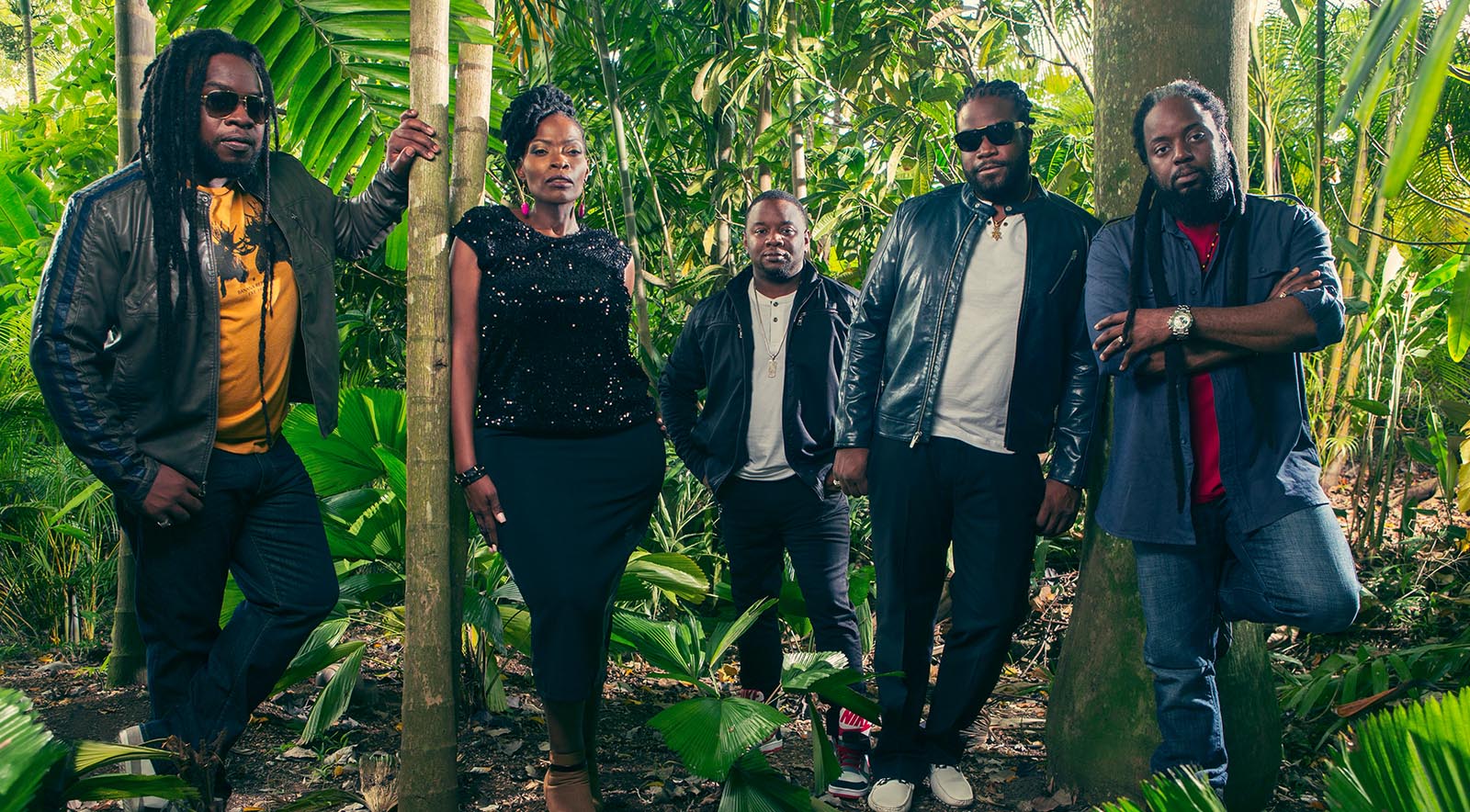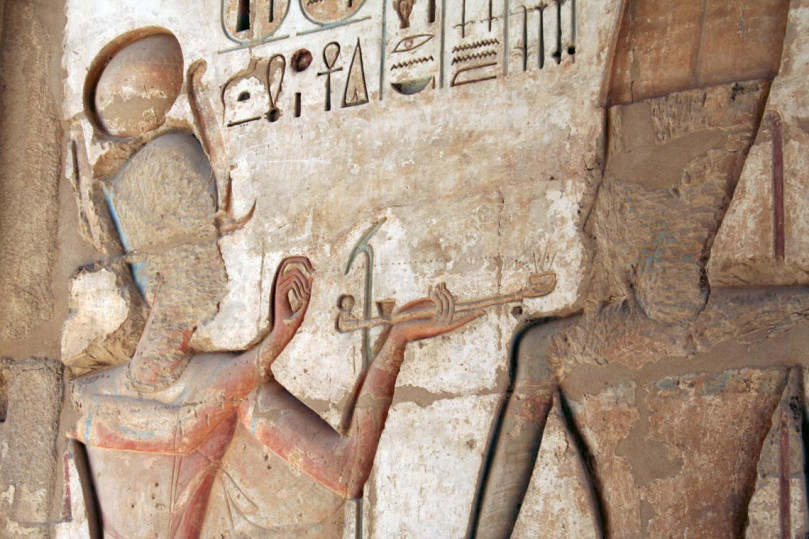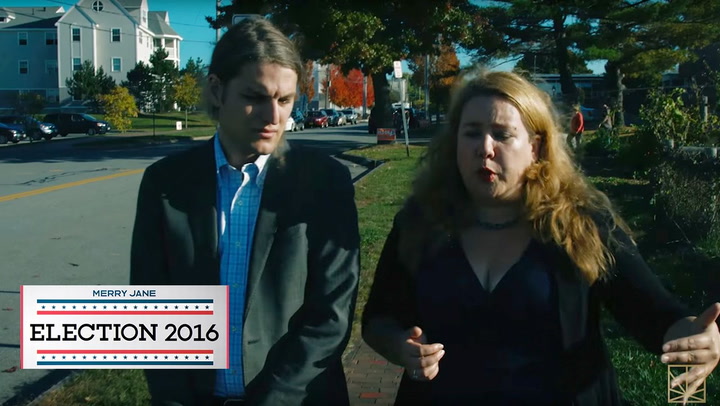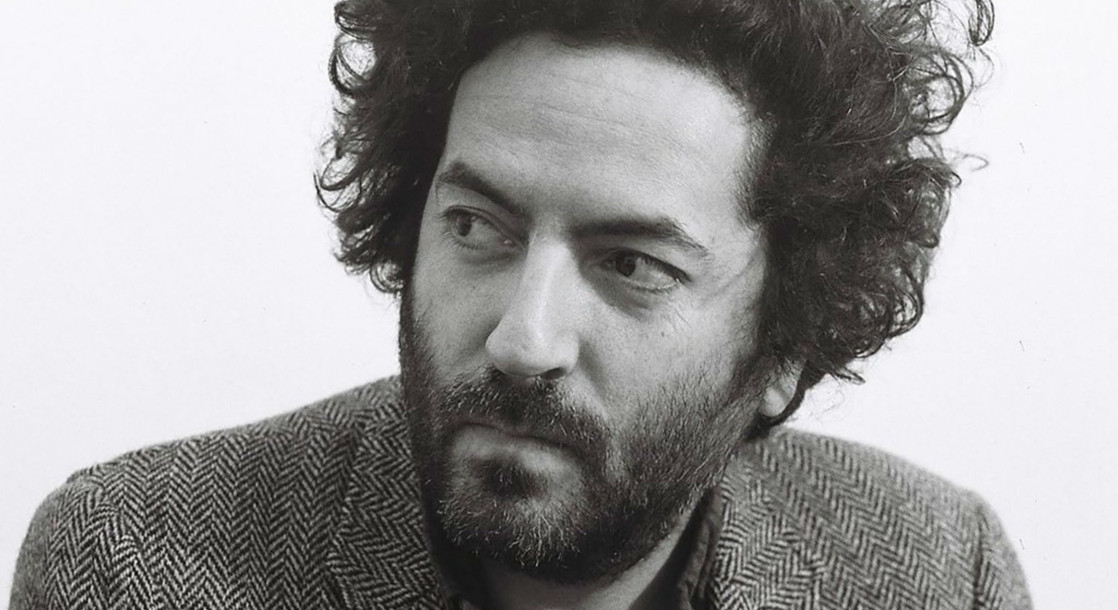August 6 marks the 55th anniversary of Jamaica breaking free from the United Kingdom’s colonial rule. To honor the occasion, we are proud to bring you MERRY JANE Presents Jamaica Week. All week leading up to Jamaican Independence Day, MERRY JANE is celebrating the Jamaican people and the many great things that the island has given to the world — from music, dance, and food, to the Rastafarian religion, cannabis culture, and good vibes.
Morgan Heritage, the group comprised of five of reggae legend Denroy Morgan’s children, have now been together for 23 years, releasing 14 albums (not counting three live records and one greatest hits compilation) over the course of their career. They’ve seemingly explored every sonic corner of reggae and collaborated with every possible reggae artist, from the vanguard (multiple Marley offspring) to the new generation of stars (Chronixx). For a group that’s been around for so long, and covered so much ground, Morgan Heritage remarkably continue to find new ways to top themselves.
Last year, that meant winning their very first Grammy for Best Reggae Album for 2015’s Strictly Roots. This year, it means releasing Avrakedabra, a collection of songs that retain reggae’s essence while also incorporating sounds from a multitude of other genres. Morgan Heritage seem to have always had eclectic sources of inspiration, but never has that been more pronounced.
For Jamaica Week here at MERRY JANE, we’re having the group take over our Spotify playlist, and in addition to a miniature set of greatest hits, their selections include new favorites from artists as far-flung as Little Big Town and Twenty One Pilots. In addition, drummer/singer Mojo Morgan hopped on the phone with us for a bonus interview.
Read what Mojo had to say below while listening to Morgan Heritage’s playlist on Spotify
MERRY JANE: What is your most memorable smoking experience?
MOJO MORGAN: Morgan Heritage just left the studio, and we were on our way from Kingston back to our home in St. Thomas, in the eastern part of the island. I had just picked up some really good herb, and brother let me tell you, I lit this spliff while I was driving, and maybe halfway through it, I started to feel like I was going. I felt like I was paralyzed. I rolled myself out of the car, down the side of the car to the back door, one of my brothers took over driving, and in less than five minutes, I was knocked out. At first I was like, 'I need air! No, the air conditioning is not good. No please, I need fresh air. Wind down the window!' But then next thing I know, we're at the estate.
If you were a boxer, what song would you come out to?
I'd probably come out to a Morgan Heritage song called "The Fight."
If you were going to go out guns blazing, what song would you choose to do it to?
"Ready Or Not" by The Fugees. That intro sounds like Terminator, man.
Who is your guilty pleasure artist?
That's difficult because I'm very proud of my abstract musical likings. I always talk about it in my interviews, Cranberries, Aerosmith, Alanis Morissette, Nirvana, Jimi Hendrix, Coldplay. People are always like, 'Wow, you listen to that?' So those are my guilty pleasures, alternative music. So whatever one of those is your favorite and you wouldn't expect me to choose, pick that.
What song most reminds you of your childhood?
Any old-school hip-hop. From Run DMC to LL Cool J, the early 2Pac stuff, "Brenda's Got a Baby," you know, before he became Makaveli. When I listen to urban stations and they have "Old School at Noon" and stuff like that, it really takes me back to my childhood. But also Top 40 records like Van Halen's "Jump," Nena's "99 Luftballons," Pat Benatar, Hall & Oates, all that Lite FM stuff takes me back too.
Which song that you've released means the most to you?
I think our defining moment came in 2000 with "Don't Haffi Dread," which is a statement that, to this day, we get flack over from really zealous Rastafarians who believe that you have to have dreadlocks to be a Rastafarian. But, you know, in this modern day and time, we saw it coming that people were having dreads just as another hairstyle, and you can't determine a person's spirituality based on something like a hairstyle. We came up with that before Gramps and Peter [Morgan] started to grow dreads. It was just an idea that came to Peter, before he had dreads, as the lead singer of this Rastafarian band, a band that grew up in the Twelve Tribes of Israel, yet we didn't have dreadlocks. There was nobody that had more conviction in their daily lives, or within their lyrics, than us.
Who has been your favorite artist to work with? What is your dream collaboration?
Dream collaboration would have to be John Legend, Coldplay, Stevie Wonder. I think all of us in the group would be happy with that. Our favorite to work with so far is very difficult because we have chemistry with different artists, from Capleton, to Stephen Marley, to Damien Marley, Ziggy Marley… It's always a special experience collaborating with the Marleys, but Chronixx was just amazing. Kabaka Pyramid was really refreshing on this album, so it's really difficult to say that one artist was more of our favorite than another. That being said, I think Capleton is one of the most unique.
You seem to have very eclectic taste. Do you credit that to growing up in a musical family?
Very much so. We were born to Jamaican parents who always listened to the classics, from the Heptones, to the Maytals, the Wailers. But our era of parents also grew up on country music in Jamaica, so we discovered Dolly Parton, John Denver, and Kenny Rogers at a very young age. Every Sunday was rice and peas day, so they played all these records every Sunday. So that's how we got into what they were listening to, but being born in Brooklyn, we were exposed to urban radio, and being educated in Springfield, Massachusetts, exposed to Top 40 radio, so it's a really multi-cultural upbringing that we had.
What are the best and worst parts about being in a band with your siblings?
The best part is when we step out there on the stage. You forget everything else. All of our problems– whatever any of us are going through, it all goes away for that 30-to-90 minutes that we're out there. And then of course it comes back. The worst part, I would have to say, is seeing their ugly faces every day [laughs]. No, but we know each other very well, and we know things that get on each others' nerves, and we do them just because we can. That's probably the only bad thing about being in a family group for 20+ years.
You released an album in 2015 called Strictly Roots, was the idea with Avrakedabra to make more futuristic or modern-sounding music?
For us, it was about putting a body of work together that reflected where we are now musically, in our career, and just as human beings. We've grown so much coming from this Rastafarian-centric band where everything was about our spirituality and the struggle, where now, we've made it. So you can't sing about the struggle as if you're living it– you have to speak about the struggles in life from an onlooker's perspective, and from a perspective of hope, wanting to do better for your fellow human beings. So we're singing from a humanitarian aspect now, versus from a ghetto youths aspect when we were going through the things. Lyrically, that's the difference where we are right now.
Musically, we've grown so much, we've experienced different cultures, we've been in different countries, four different continents. We'd go into the studio and push ourselves, musically and creatively, to come up with sounds that push the envelope of reggae music, just to not do the same things as our predecessors in the '70s and '80s. That's always our thing, and it was one of the reasons Steel Pulse has always been one of our favorite reggae icons– they've never been afraid to bring in sounds that they're experiencing in other genres into their brand of reggae music. On this new album, I think we were able to bring in sounds from our youth, like Zapp with the talkbox, but also things that influence mainstream radio today, whether it be hip-hop and rock, or dubstep and EDM. Those are just things that happened organically.












